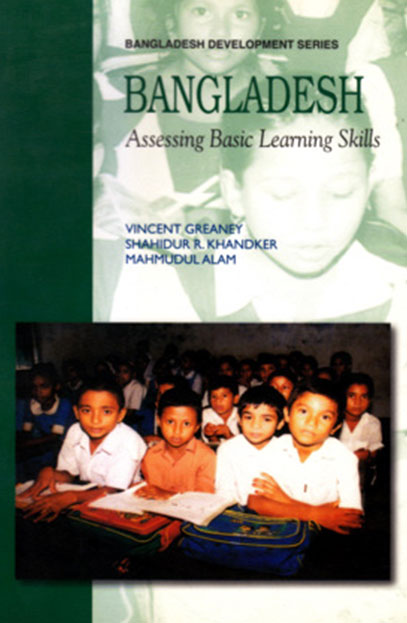- Shop
- Bangladesh: Assessing Basic Learning Skills
Bangladesh: Assessing Basic Learning Skills
https://uplbooks.com/shop/9789840514496-bangladesh-assessing-basic-learning-skills-6436 https://uplbooks.com/web/image/product.template/6436/image_1920?unique=3d813f3
| Language: English |
Tags :
Book Info
Literacy is necessary though not sufficient for economic development. As Bangladesh strives to raise the living standards of its population, the present accepted high level of literacy restricts the country’s potential for development in the areas of economic growth, education and the quality of life of its citizens. It is well nigh impossible to state with any degree of confidence what the illiteracy rate is as definitions of illiteracy have changed over recent decades and the existing measures lack validity. The present study expands on traditional concepts of literacy. It defines minimally acceptable levels of performance in the basic skills of reading, writing, written mathematics and oral mathematics. Minimal performance levels, determined by a panel of employers, civil servants and educators, were defined as those essential basic learning skills considered necessary to function at a minimal level of competence in Bangladeshi society. The authors describe the producers for test development in four subject areas and for determining minimally acceptable levels of performance. They relate performance levels in each subject area to gender, and level of schooling completed as a measure of achievement. The study of over 5,200 people provides baseline data against which changes in literacy levels can be monitored over time. The empirical approach to literacy assessment should be of interest to education and economic planners, literacy organizations and development agencies. Offering concrete guidelines for literacy assessment, it can help determine the level of competence of a population in a vital area of personal and national development, an essential starting point for monitoring, planning and decision making.

Shahidur R. Khandker
Shahidur R. Khandker Shahidur R. Khandker is a senior economist in the Poverty Reduction and Economic management network of the World Bank.

Mahmudul Alam
Mahmudul Alam is a Senior Research Fellow and Division Chief of the Human Resource Division of the Bangladesh Institute of Development Studies. He has a DPhill in economics from Sussex. His current research interests include socio-economic and action-oriented topics in education, health and nutrition.




